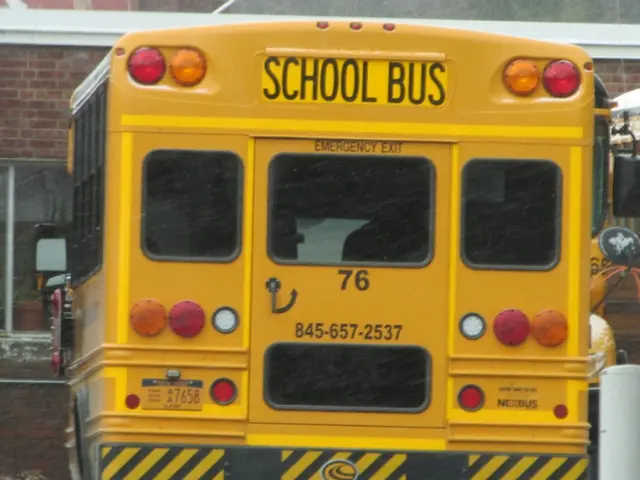Enhanced safeguards for residents' wellbeing enacted
In North Rhine-Westphalia (NRW), the new Tenant Protection Regulation is facing criticism due to its reliance on outdated data and inappropriate selection of indicators, which critics argue undermines its ability to accurately reflect the current housing market dynamics and effectively address the challenges faced by tenants in the region.
The regulation, determined using data from 2019-2022, is being criticised for its failure to incorporate more current and reliable data from 2024. This oversight could lead to misinformed policy measures, as housing markets are dynamic and relying on old statistics may not provide an accurate picture of the current situation.
Moreover, the selected indicators do not adequately measure housing shortage or market tension. Critics argue that key factors such as income levels, affordability relative to earnings, and specific local market pressures are overlooked, potentially leading to an inaccurate classification of areas as either tense or relaxed markets.
The comparison with other German federal states reveals a stark contrast. Other states tend to use more comprehensive and current criteria, incorporating a broader set of data points, including recent rent developments, vacancy rates, and economic indicators tailored to specific local conditions. NRW's approach, on the other hand, is seen as less adaptive, with regulations adjusted less frequently based on up-to-date analyses and multidimensional indicators.
The criticism focuses on the mismatch between the regulation’s data basis and the real housing market situation in NRW. This discrepancy could weaken tenant protections and fail to address housing shortage effectively. Other states' more nuanced, data-driven approaches highlight the need for NRW to update its indicators and datasets to keep pace with market realities and better support tenants in tense markets.
SPD legal expert Sonja Bongers has emphasised the need for a fundamental revision of the Tenant Protection Regulation 2025. She has stated that the involvement of municipalities and tenant protection associations in the process of redesigning the regulation has not taken place again.
As of now, around 85% of the 396 municipalities in North Rhine-Westphalia do not have the best possible tenant protection according to the Civil Code. The use of outdated data bases contributes to an inaccurate representation of the housing markets in North Rhine-Westphalia in the Tenant Protection Regulation 2025.
Comparisons with corresponding studies by RegioKontext GmbH in other federal states (Lower Saxony and Schleswig-Holstein) showed significant differences. The Tenant Protection Regulation 2025 does not accurately represent the housing markets in North Rhine-Westphalia, according to Bongers.
NRW.BANK's activities, for example, show a proactive financial effort in subsidized housing construction and support for income-based housing needs, indicating a strategic approach to housing shortage that complements tenant protections but requires well-grounded regulations to be effective.
In conclusion, the Tenant Protection Regulation for North Rhine-Westphalia faces criticism for its reliance on outdated data and inappropriate selection of indicators, which could lead to an unrealistic picture of tense housing markets in the state. A fundamental revision of the regulation is necessary to better reflect the current housing market situation and effectively support tenants in tense markets.
- The new Tenant Protection Regulation in NRW, based on data from 2019-2022, is under fire for not incorporating more current data from 2024, potentially leading to misguided policy measures.
- Critics argue that the selected indicators fail to adequately measure housing shortage and market tension, overlooking key factors like income levels, affordability, and local market pressures.
- In contrast, other German states use more comprehensive and current criteria, considering factors like recent rent developments, vacancy rates, and economic indicators specific to local conditions.
- This discrepancy between the regulation’s data basis and the real housing market situation in NRW could weaken tenant protections and fail to address housing shortage effectively.
- SPD legal expert Sonja Bongers has called for a fundamental revision of the Tenant Protection Regulation 2025, emphasizing the lack of municipal and tenant protection association involvement in the redesign process.
- As of now, around 85% of the 396 municipalities in NRW do not have the best possible tenant protection according to the Civil Code.
- Comparisons with RegioKontext GmbH studies in other federal states (Lower Saxony and Schleswig-Holstein) show significant differences, suggesting that the Tenant Protection Regulation 2025 does not accurately represent NRW's housing markets.
- NRW.BANK's financial efforts in subsidized housing construction and income-based housing support highlight a strategic approach to housing shortage, but require well-grounded regulations for effectiveness.
- Books on education and self-development, focusing on policy, legislation, and markets, could provide valuable insights for this topic.
- Social media platforms offer a space for open dialogue and advocacy, allowing users to voice their concerns about the Tenant Protection Regulation and propose solutions for addressing housing shortage.
- The ongoing criticism and the need for a fundamental revision of the Tenant Protection Regulation present opportunities for involved parties, including politicians, financial institutions, and construction industries, to invest in and shape policies that will benefit the housing market and tenants in NRW.




